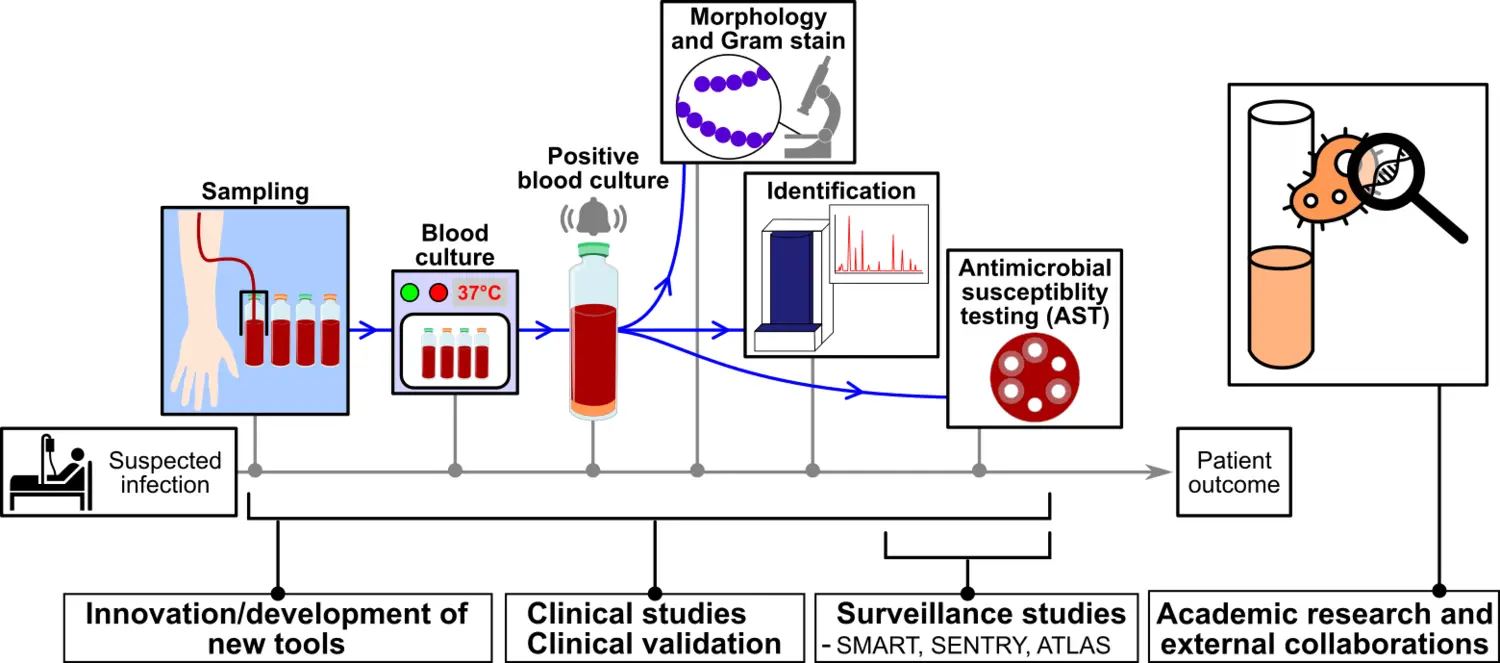Despite advances in medical science, infectious diseases remain one of the leading causes of morbidity and mortality worldwide. In the light of rapidly evolving pathogens, there is an urgent need for efficient infectious disease diagnosis.
Our lab employs a unique multidisciplinary approach in our research.
Our research
Our research spans the following areas:
- Development, evaluation, and implementation of unique methods in clinical microbiology.
- Clinical mycology.
- Innovations in clinical diagnostics.
- Innovations to promote an environmentally friendly laboratory.
- Research on Artificial Intelligence in clinical microbiology and clinical mycology.
We endeavor to improve the current state of clinical microbiology through the evaluation of analytical and clinical performance of new microbiological diagnostic methods, and development of clinical microbiology methods for rapid detection, identification, and antibiotic susceptibility testing of clinically relevant microorganisms. We also study the epidemiology of severe infectious diseases, as well as bacteria-fungi interactions as we believe that increased understanding of these areas is instrumental in driving improvements to the infection diagnostics landscape.

